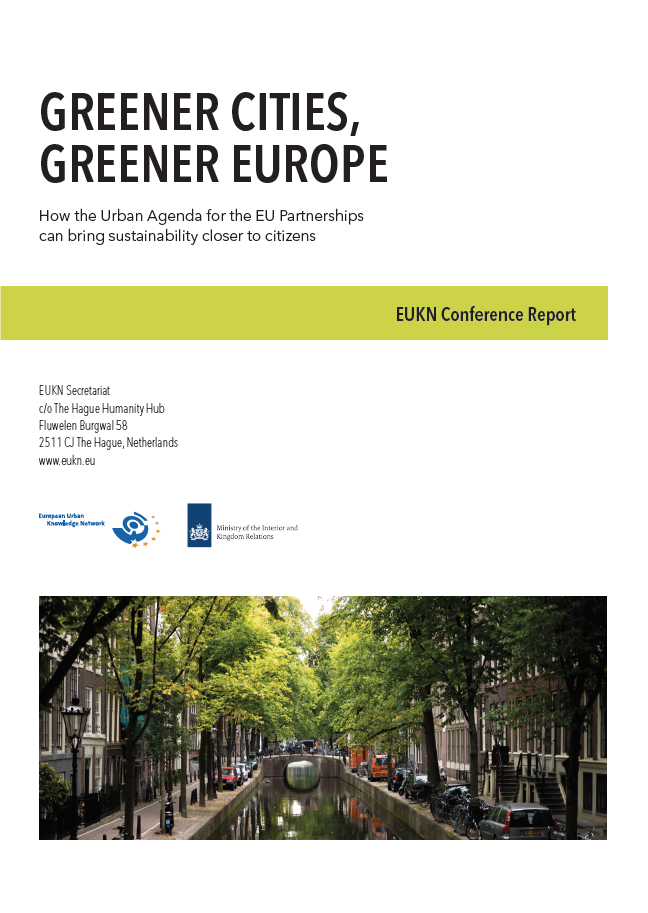-
0 comments
How the Urban Agenda for the EU Partnerships can bring sustainability closer to citizens
This publication explores the concrete contribution of the Urban Agenda for the EU (UAEU) towards Europe’s sustainable transition by focusing on its environmental face: the most straightforwardly ‘green’ Partnerships. It builds on the EUKN Conference ‘Greener Cities, Greener Europe – How the Urban Agenda for the EU Partnerships can bring sustainability closer to citizens’, which was organised on 7 October 2019 as an official side event of the 2019 European Week of Regions and Cities (EWRC). Both the conference and the publication were commissioned by the Dutch Ministry of the Interior and Kingdom Relations.
The conference, acknowledging the dominant role of the urban realm in the fight against climate change, sought to answer three main questions:
1. What is the role of cities and citizens in implementing sustainability policies?
2. How can the ‘green’ Partnerships of the Urban Agenda for the EU contribute to bringing sustainability closer to citizens?
3. How can key political stakeholders support the implementation of the Actions proposed by the Partnerships?
By elaborating key findings from the conference and analysing the experiences of the ‘green’ Partnerships, this study wishes to gather knowledge on existing practices and gaps in bringing about an urban sustainability transition, structurally supported by the outcomes of the Urban Agenda for the EU.
From this study, it emerged that:
Future-proofing the UAEU implies a commitment towards a model of sustainable economy centred around local practices and experiments. Nonetheless, it is still uncertain whether the UAEU will fully materialise as a transition arena, allowing top-down guidance and bottom-up initiatives to develop a shared language, which is key for a successful cooperation of all actors involved in the UAEU and for the implementation of actions proposed by the Partnerships.
Close cooperation between UAEU Partnerships is crucial for the successful implementation of actions. The current setup of the UAEU does not sufficiently promote such a cooperation. The production of ‘green’ actions from all existing Partnerships underlines the shared engagement to reduce the environmental footprint of urban areas as well as the need for a holistic understanding of sustainability. Several Partnerships have been working together to achieve this shared goal but there is a strong need for more cooperation.
Bottom-up local initiatives need to be empowered by top-down guidance. European cities are frontrunners when it comes to the design of solutions to achieve sustainability goals. However, local action needs to be supported by other governmental levels – regional, national and European – to produce a real impact. Finding the right balance between bottom-up and top-down approaches is crucial to achieve structural changes and to embed local successes into multi-level policymaking.
The constant tension between institutionalisation and experimentation is an intrinsic issue in sustainability transitions, and particularly relevant in light of policy discussion about the future of the UAEU. Opinions on this topic differ, but it has been generally recognised that the successful informal working method of the UAEU needs to combined with formal actions in order to enhance its impact at the European level.


